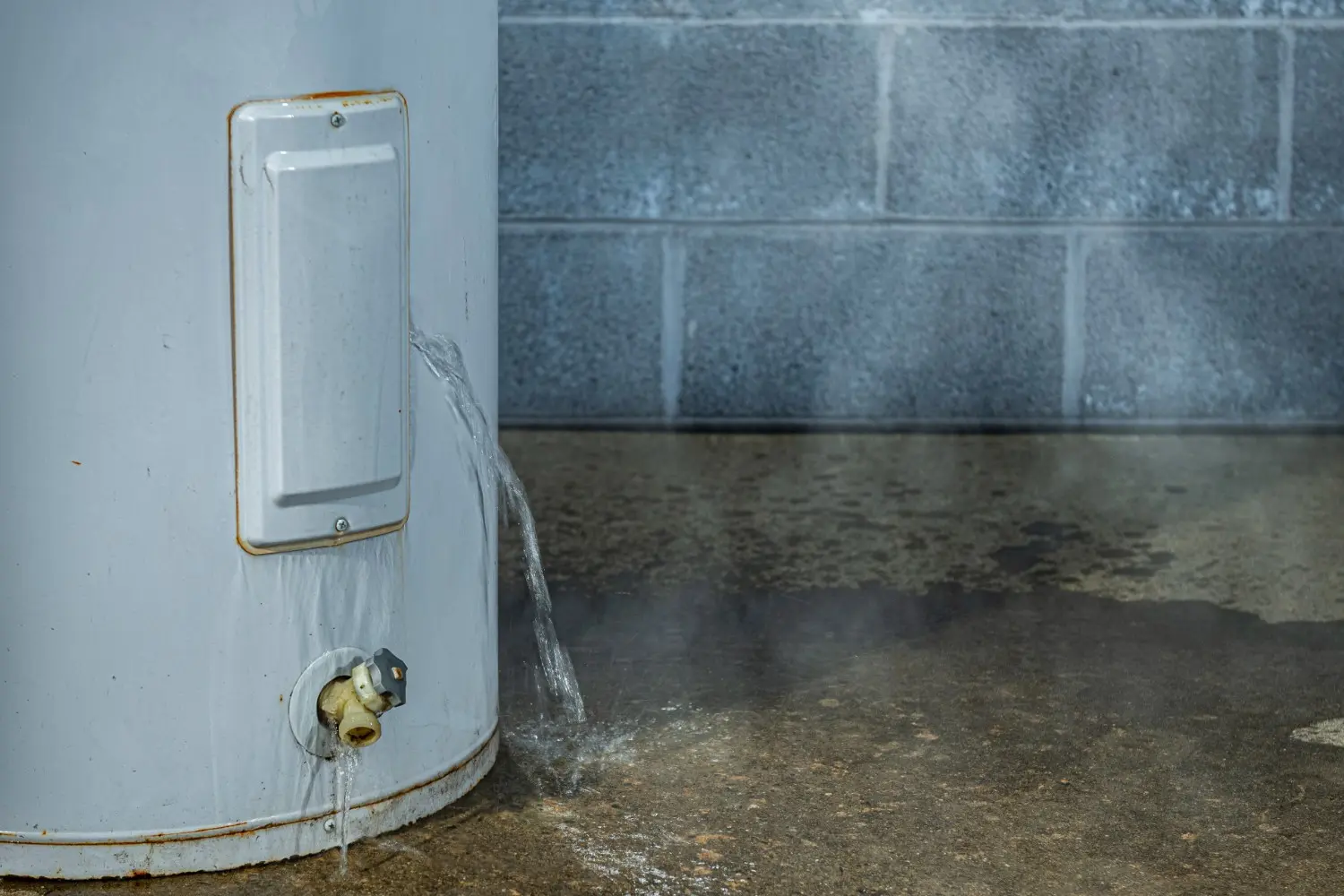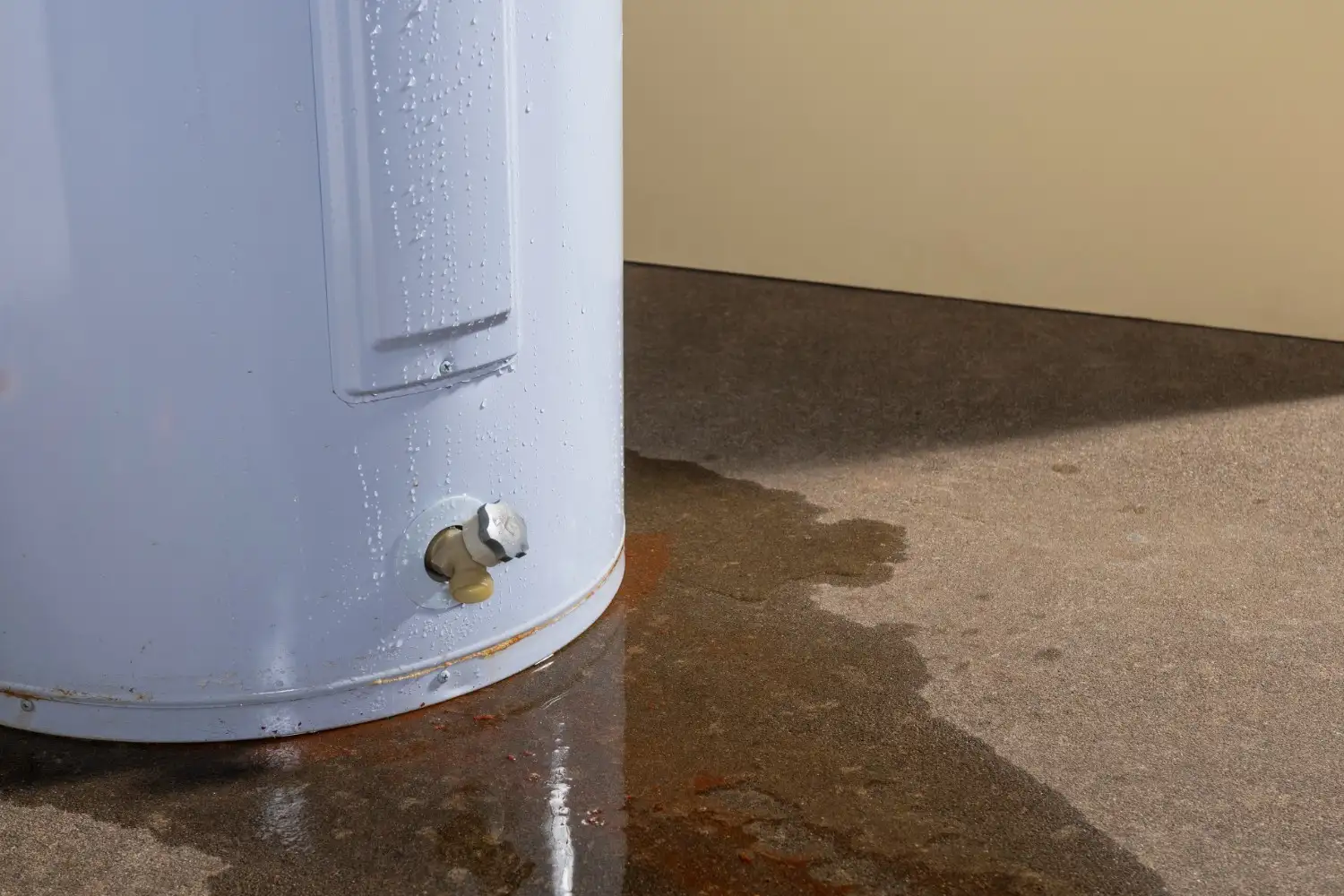Hot Water Heater Leaking in San Antonio, TX
Discovering a pool of water around your hot water heater is instantly alarming. A leaking water heater isn't just a minor inconvenience; it can quickly lead to significant water damage, mold growth, and even pose safety risks to your San Antonio home. If you're facing this situation, fast, expert assistance is crucial to protect your property and restore your hot water supply. Addressing a leak promptly can save you considerable stress and expense down the line.
Why a Leaking Water Heater is an Emergency
A water heater typically holds between 30 and 80 gallons of water. When that tank or its connections fail, that large volume of water can escape rapidly. The potential consequences in your home include:
- Extensive Water Damage: Water can saturate floors, walls, ceilings (if the heater is on an upper level), and belongings, causing structural damage and costly repairs.
- Mold and Mildew Growth: Standing water and persistent moisture create an ideal environment for mold, which can appear surprisingly quickly and poses health risks.
- Structural Integrity Issues: Continuous leaks can weaken support beams, drywall, and flooring, compromising the structural integrity of your home over time.
- Electrical Hazards: Water and electricity are a dangerous combination. Leaks near electrical components can create fire or shock hazards.
- Reduced Home Value: Lingering water damage and mold issues can significantly decrease your home's market value.
Ignoring or delaying repair for a water heater leak is never advisable. The situation rarely improves on its own and almost always worsens, leading to more severe problems and higher costs.

STOP THE LEAK: Immediate Steps to Take (Before We Arrive)
While waiting for professional help, there are immediate steps you can take to minimize damage and ensure safety. It's important to act quickly but cautiously.
- Shut Off the Water Supply: Find the cold water shut-off valve connected to your water heater. It's usually a handle located on the pipe entering the top of the unit. Turn this valve clockwise as far as it will go to stop water from filling the tank. If the valve is corroded or won't turn, locate your home's main water shut-off valve and turn off the water supply to the entire house.
- Turn Off the Power or Gas Supply:
- Electric Water Heaters: Go to your home's electrical panel and locate the breaker labeled for the water heater. Flip the breaker to the OFF position.
- Gas Water Heaters: On the top of the gas control valve (the thermostat on the side of the tank), find the dial with settings like "On," "Pilot," and "Off." Turn this dial to the "Off" position. If you smell gas at any point, leave the area immediately and call your gas company from a safe location.
- Drain the Tank (If Safe and Possible): This step can help reduce the amount of water leaking, but proceed with caution. Connect a garden hose to the drain valve located near the bottom of the water heater. Run the other end of the hose to a floor drain, outside, or into a large bucket (you'll need to empty it repeatedly). Open the drain valve by turning the handle or slot. Be aware the water inside will likely be hot. Opening a hot water faucet inside the house can help the tank drain faster. Do not drain the tank if the power or gas is still on, as this can damage heating elements or the tank itself.
- Contain the Leak: Use towels, buckets, or a wet/dry vacuum to contain and remove the standing water around the unit. The more water you can remove, the less damage will occur.
- Clear the Area: Move any valuable belongings, furniture, or electronics away from the leaking water heater to protect them from potential damage.
Following these steps can help mitigate the immediate crisis while you wait for expert assistance.
Where Is Your Water Heater Leaking From? Common Sources Explained
Identifying the source of the leak can provide clues about the severity of the problem and the likely solution. While a professional diagnosis is always necessary, here are common points where water heaters leak:
- The Tank Itself: Leaks coming directly from the body of the tank are often the most serious. This typically indicates corrosion inside the tank liner. Once the metal corrodes through, there's no way to effectively repair it, and the entire unit will need to be replaced. This is especially common in older units or those affected by challenging water conditions.
- The Drain Valve: Located near the bottom of the tank, the drain valve can leak if it's loose, damaged, or corroded. In many cases, this valve can be tightened or replaced to stop the leak.
- Temperature and Pressure Relief (TPR) Valve: This vital safety valve is designed to open and release water if the temperature or pressure inside the tank gets too high. If it's leaking constantly or intermittently, it could indicate excessive pressure (a serious issue requiring immediate attention) or simply a faulty valve that needs replacement.
- Inlet and Outlet Pipe Connections: Leaks at the top of the water heater where the cold water inlet and hot water outlet pipes connect are often due to loose fittings, corrosion on the connections, or issues with dielectric unions (used to prevent corrosion between dissimilar metals). These leaks are frequently repairable by tightening or replacing the faulty connection.
- Heating Element Gasket (Electric Water Heaters): Electric water heaters have heating elements that extend into the tank. The gasket sealing these elements can fail, causing water to leak around the element connection point. Replacing the gasket and potentially the element is a common repair.
Understanding where the leak originates helps your plumber assess the situation more accurately upon arrival.
Understanding Your Water Heater Type and Leaks
The type of water heater you have can influence where leaks are most likely to occur:
- Tank Water Heaters: These are the most common type and the ones where tank corrosion leaks are a significant concern, especially as the unit ages. Leaks from the drain valve or TPR valve are also typical.
- Tankless Water Heaters: While they don't have a large tank to corrode, tankless units can still leak from pipe connections, heat exchangers, or other internal components. Leaks here often require specialized knowledge of the unit's complex internal workings.
Whether you have a gas or electric unit doesn't change the common leak points (tank, valves, connections), but the method of shutting off the power source is different, as noted in the immediate steps section.
Repair or Replace? What a Leak Means for Your Unit
One of the most critical questions when a water heater leaks is whether it can be repaired or needs complete replacement. The answer largely depends on the source of the leak:
- Leaks from Connections, Valves, or Elements: In many cases, leaks originating from the drain valve, TPR valve, inlet/outlet pipes, or heating element gaskets are repairable. If the tank itself is in good condition and the unit is not excessively old, replacing the faulty component is often the recommended solution.
- Leaks from the Tank Body: Unfortunately, if the main storage tank is leaking, it is almost always a sign of irreversible internal corrosion. There is no reliable or safe way to patch a corroded water heater tank. In this scenario, replacement is necessary. Factors like the age of your unit also play a role. If your water heater is nearing or past its average lifespan (typically 10-15 years for a tank unit), even a minor leak from a valve might signal that other components are nearing the end of their life, making replacement a more economical long-term choice.
A qualified plumber will thoroughly inspect your unit, determine the leak source, assess the overall condition and age of the heater, and provide an expert recommendation on whether repair or replacement is the best course of action for your San Antonio home.
Addressing San Antonio's Hard Water and Your Water Heater
San Antonio is known for having hard water, meaning it contains high levels of dissolved minerals like calcium and magnesium. Hard water can significantly impact the lifespan and performance of your water heater. Mineral sediment can build up inside the tank, especially at the bottom, leading to:
- Reduced heating efficiency.
- Increased noise (rumbling sounds).
- Accelerated corrosion of the tank liner and heating elements.
- Potential blockages or damage to valves.
This hard water buildup can be a contributing factor to leaks over time. Regular water heater maintenance, including flushing the tank to remove sediment, is crucial in San Antonio to help prevent premature failure and leaks. Considering water treatment systems like water softeners can also help extend the life of your plumbing fixtures and appliances, including your water heater, by reducing mineral buildup.
Our Leaking Water Heater Services in San Antonio
When you call Roadrunner Plumbing & Air for help with a leaking water heater, you need a rapid, effective response. Roadrunner Plumbing & Air services are specifically designed to address the urgency and complexity of water heater leaks:
- Emergency Plumbing Service: Leaks don't happen on schedule. We offer prompt service to address your water heater emergency quickly.
- Expert Leak Detection: Our experienced technicians are skilled at quickly identifying the precise source of the leak, even if it's hidden.
- Component Repair: If the leak is from a valve, connection, or element, we perform efficient and reliable repairs to stop the flow and restore function.
- Water Heater Replacement: When the tank is leaking, or the unit is beyond repair, we provide professional guidance on choosing a new, energy-efficient model suitable for your home's needs and perform expert installation. We handle both tank and tankless water heater replacements.
We understand the specific plumbing challenges faced by homeowners in San Antonio, including the effects of hard water, and tailor our solutions accordingly.
Why Choose Roadrunner Plumbing & Air for Leaking Water Heater Service in San Antonio
Dealing with a leaking water heater is stressful. Choosing the right plumbing partner in San Antonio means selecting a team that can respond quickly, diagnose accurately, and provide reliable solutions. Our commitment to providing prompt, professional plumbing services ensures your water heater leak is addressed effectively. We stand behind our work with a Worry-Free Warranty on eligible services, providing peace of mind that the job is done right. While costs vary depending on the nature of the leak and whether repair or replacement is needed, we offer options to meet various budgets and provide information on financing options if needed for larger jobs like replacement.
Frequently Asked Questions About Water Heater Leaks
What should I do immediately if my water heater is leaking?
Immediately shut off the water supply to the heater and turn off the power (for electric) or gas (for gas) supply to the unit. Then, try to contain the water and call a professional plumber for help.
Can a leaking water heater be repaired?
It depends on where the leak is coming from. Leaks from valves, connections, or elements can often be repaired. However, a leak from the tank itself usually requires the unit to be replaced.
How much does it cost to fix a water heater leak?
The cost varies greatly depending on the cause of the leak (simple valve replacement vs. full unit replacement), the type of water heater, and the complexity of the job. A plumber will assess the situation and provide an estimate.
Is a leaking water heater dangerous?
Yes, a leaking water heater can be dangerous. It can cause water damage leading to mold and structural issues, create electrical hazards if water reaches wiring, and a leaking TPR valve can indicate dangerously high pressure.
How long does it take to fix a leaking water heater?
Simple repairs like tightening a connection or replacing a valve might take an hour or two. Diagnosing the leak source can also take time. If the unit needs replacement, the process can take several hours, depending on whether it's a like-for-like swap or requires modifications.
Serving San Antonio and Surrounding Areas
We are proud to serve homeowners throughout San Antonio and its surrounding communities. If you have a hot water heater leaking, don't hesitate to seek professional help in our service area.
Financing options
flexible financing solutions

We offer convenient financing options through Wells Fargo, making it easier to invest in plumbing or HVAC upgrades with flexible payments that fit your budget. Your comfort, safety, and satisfaction are always our top priorities—every service, every time.
Apply for Financing
We offer flexible financing options through GreenSky to help you move forward with essential plumbing or HVAC upgrades without delay. With quick approvals and affordable monthly payments, you can get the service you need while staying within budget.
Apply for Financing
We offer financing through Synchrony to make it easier to get the plumbing or HVAC service you need without delay. With simple application steps and convenient monthly payments, you can manage costs while enjoying reliable home comfort.
Apply for Financing
where we serve

